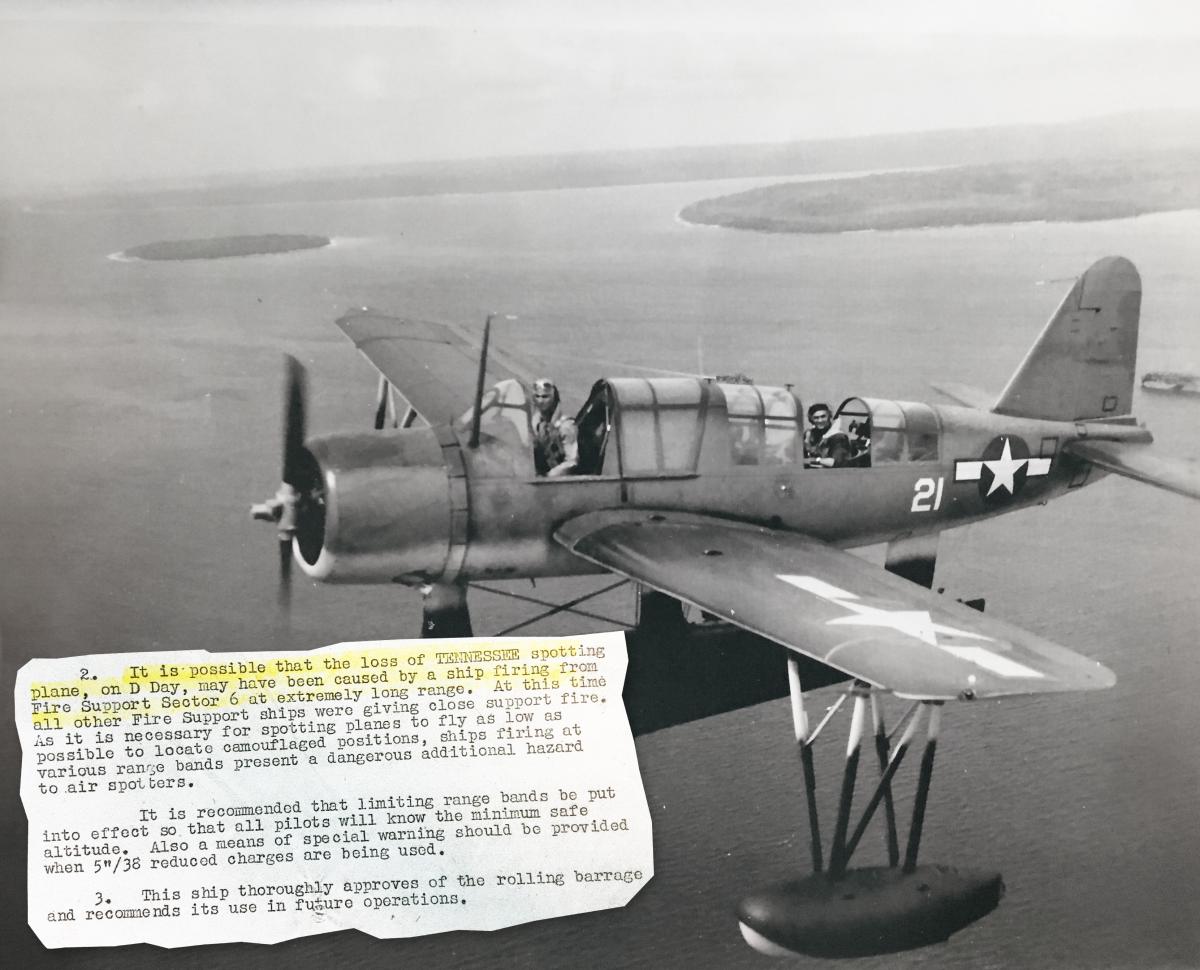Friendly Fire—Over the Years and Wars

This is being written during D-Day anniversary week. Media attention has been focused on France and the WWII Normandy invasion, popularly known as D-Day.
A major difference between press coverage in WWII and today’s limited engagements is that casualties in recent combat have been far lighter than in wars past. Accordingly, the death of a single soldier often gets considerable coverage. Recently CBS’s “60 Minutes” repeated a segment originally broadcast several years ago about the deaths of five soldiers in a friendly fire incident in Afghanistan. It featured several men on the unlucky team who knew immediately that our own aircraft had killed their comrades.
Assigning blame was tricky. CBS even brought in a general to comment. There was no doubt that it was a tragic case of friendly fire. Nobody could cover that up. It struck me as a startling contrast to a WWII likely friendly fire death in the skies above Iwo Jima. My cousin, Lt. J.G. Thomas McCormick died when something struck his small spotter plane flying off the Battleship Tennessee on the morning the Marines landed to begin one of the bloodiest fights of the war.
For years, that’s all the family knew. A great looking guy was missing, then pronounced dead. There was much more to the story, but that took 60 years to learn. We had contacted Paul Dawson who runs the USS Tennessee Museum in Huntsville, Tennessee. We were amazed to learn he knew of my cousin. His father had been the ship’s photographer and had photos of the handful of pilots who flew its small floatplane, the OSU-2 Kingfisher. He had photos of Tommy we never saw.
He also discovered, a year later, a document we never knew existed. It was an “after battle” report, marked confidential, and not likely seen by human eyes for long after the 1945 battle. It included this shock: “It is possible that the loss of the TENNESSEE spotting plane, on D-Day, may have been caused by a ship firing from Fire Support Sector 6 at extremely long range.”
The report went on to recommend our aircraft be careful to stay above the trajectory of the big shells. It suggests the Navy knew right away that a large shell had knocked Tommy’s plane apart without exploding.
***
There was much publicity about the 75th anniversary of D-Day. Celebrities, such as Tom Brokaw, have been inspired to return (after writing a best seller, “The Greatest Generation” based on our soldiers’ heroics in that historic event). Over and over we heard that the sacrifices of the invasion forces, including French resistance fighters, must never be forgotten.
One wonders about that. At the same time as all the D-Day anniversary pomp and pageantry, stories appeared about the drastic decline of visitors to hallowed Civil War sites. The Wall Street Journal reported that five major Civil War battlefields drew 3.1 million visitors last year—down from 10.2 million in 1970.
That is a disturbing sign, especially for places such as Adams County, Pennsylvania, whose economy benefits from tourism associated with the Gettysburg campaign. They used to joke that there were more re-enactors roaming around Gettysburg on weekends than there were men in the actual battle. No more.
One explanation for the decline in Civil War interest is the recent trend toward revising that history. It used to be settled history that the South seceded to form a new country, and the overwhelming numbers of their populations considered their first loyalty to their states, not a loosely constructed federal government. But recently, perversions of that history have depicted them all as racists and traitors. Thus the movement to take down Confederate monuments and portray admirable men, such as Robert E. Lee, as evil. As The Federalist put it: “If history is just another tool in the pursuit of political power, there’s not much of an impetus to get it right.”
If something as monumental as the Civil War can be forgotten, what chance does Normandy have 100 years from now?
